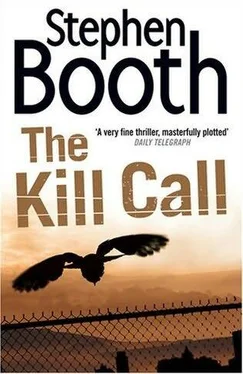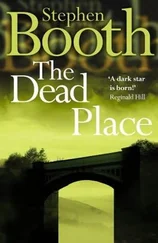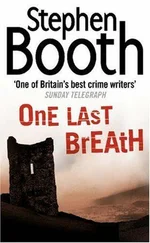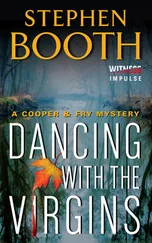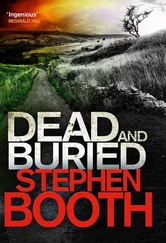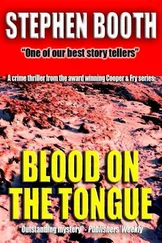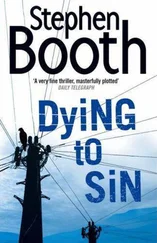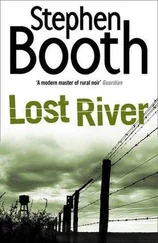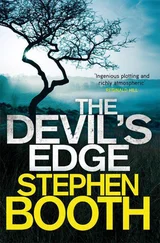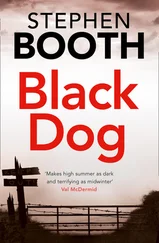Stephen Booth - The kill call
Здесь есть возможность читать онлайн «Stephen Booth - The kill call» — ознакомительный отрывок электронной книги совершенно бесплатно, а после прочтения отрывка купить полную версию. В некоторых случаях можно слушать аудио, скачать через торрент в формате fb2 и присутствует краткое содержание. Жанр: Полицейский детектив, на английском языке. Описание произведения, (предисловие) а так же отзывы посетителей доступны на портале библиотеки ЛибКат.
- Название:The kill call
- Автор:
- Жанр:
- Год:неизвестен
- ISBN:нет данных
- Рейтинг книги:4 / 5. Голосов: 1
-
Избранное:Добавить в избранное
- Отзывы:
-
Ваша оценка:
- 80
- 1
- 2
- 3
- 4
- 5
The kill call: краткое содержание, описание и аннотация
Предлагаем к чтению аннотацию, описание, краткое содержание или предисловие (зависит от того, что написал сам автор книги «The kill call»). Если вы не нашли необходимую информацию о книге — напишите в комментариях, мы постараемся отыскать её.
The kill call — читать онлайн ознакомительный отрывок
Ниже представлен текст книги, разбитый по страницам. Система сохранения места последней прочитанной страницы, позволяет с удобством читать онлайн бесплатно книгу «The kill call», без необходимости каждый раз заново искать на чём Вы остановились. Поставьте закладку, и сможете в любой момент перейти на страницу, на которой закончили чтение.
Интервал:
Закладка:
‘Could there be some other local connection then, apart from Pauline? What if there’s a real significance in the Royal Observer Corps stuff?’
‘But Michael Clay didn’t serve in the Observer Corps,’ said Fry.
‘No.’
Cooper recalled the photo of the ROC members. Their blue battledress tunics, their berets at rakish and unflattering angles, their cap badges glinting. It had been a colour photo, so he’d guessed the date to have been the sixties. In the photo, the ROC crew were standing in front of a small brick tower with no roof and a set of steps up the outside wall. An aircraft-monitoring post. According to David Headon, the last overground structures had been abandoned when the RAF no longer required the ROC for that purpose.
Then he realized what he’d been missing. When he’d first spoken to Headon about the ROC, he’d mentioned cutbacks in the Corps. But he hadn’t been talking about the final stand down in 1991. That was Cooper’s own mistake, a wrong assumption.
So what was it that David Headon had said, exactly? ‘ There were thousands of us, until the cutbacks started in the sixties.’
The sixties, of course. But if there had been a big reduction in the number of observers four decades ago, then there must also have been a cut in the number of posts. Cooper pictured the map again, with that imaginary line running across Derbyshire and South Yorkshire. It was a big area for a cluster of observation posts to cover. And it wouldn’t be the way you planned it, if you were creating the network from scratch. It was more the sort of arrangement you’d end up with if some of your posts had been closed. The result of cutbacks.
The other clusters in the county all formed triangles. That made sense. So why wasn’t it the case in the north of the county? Well, he suspected it had been, once. A trio of posts — one at Buxton, and a couple of others around, say, Hope and Eyam.
So, if he was right, where was that closed post?
Cooper found himself standing above Birchlow, looking down on some of the land belonging to Rough Side Farm. Near the top of the slope was that strange hump that he’d taken for the remains of an Iron Age hill fort, or the capped shaft of an ancient lead mine.
Then he saw the line of truncated telegraph poles next to the site, and realized he’d been wrong. History was all around him in this area, yes. Thousands of years of it, dating all the way from the Romans and the Neolithic stone circle builders. But not all of its history went back quite so far.
He looked round for Fry. ‘Diane, will you come with me to see an old friend?’ he asked.
She automatically looked at her watch. ‘Well…’
‘Unless you’ve got something better to do, of course.’
David Headon nodded over his glass of beer in the pub. ‘Yes, a lot of ROC posts closed in 1968. Late in the year, it was. October. The cutbacks, like I said. It was 1968, after all. A Labour government, Harold Wilson — you remember?’
‘Well, no, I don’t.’
Headon squinted at him. ‘You can’t remember what the sixties were like. You’re not old enough. I forget that you young people weren’t even around then. You missed something, you know.’
‘Music, drugs and sex, right? The Beatles, LSD and miniskirts.’
‘Bollocks. That’s just the PR. The sixties always had a lot of good public relations men, I’ll say that for them. They have a much better image than the fifties or seventies. Well, it wasn’t like that.’
‘That’s a bit disappointing.’
‘Look at this place,’ said Headon. ‘Do you think it was all sex and drugs and rock’n’roll here in the sixties?’
‘Well — ’
‘Was it buggery. If you wanted all that stuff, you had to go to London. The Clappergate bus shelter wasn’t exactly Carnaby Street.’
‘The Clappergate — ?’
‘That’s where we kids used to hang about. It had a shelter, you see — so it was the only place to get out of the rain, if you didn’t fancy the youth club. And the only drug we ever saw in that bus shelter was the nub end of a Woodbine.’
‘I bet your dad had a Ford Anglia, too,’ said Fry.
Headon glowered at her. ‘No, he had a brand-new Mark II Cortina. But it was about more than that, a lot more. And not all of it was good. Not everything about the sixties was swinging.’
‘What do you mean?’ asked Cooper.
‘It’s hard to explain if you didn’t experience it. But some of us who were youngsters at the time grew up with the idea that we could die at any moment. Blown to bits in a fireball and a mushroom cloud. We genuinely believed that World War Three could start at any time. It was worst around the time of the Cuban Missile Crisis, of course, a few years earlier. That was when — ’
‘Yes, I did study a bit of Modern History at school. The Cold War, and all that.’
‘History? Well, I suppose it is history, now. No, the sixties were the Berlin Wall, John F. Kennedy’s assassination, the Six-Day War in the Middle East. The Soviet Union and China were both testing atomic bombs. And everyone talked about the four-minute warning we’d get of a nuclear attack. At school, we didn’t discuss whether there’d be a nuclear war but what we’d do in those last four minutes.’
Fry laughed. ‘Among schoolboys? I bet there was a reasonable consensus.’
‘So what happened to the ROC when the cuts happened?’ insisted Cooper.
‘About half the Derbyshire posts were closed. We lost Baslow, Chinley, Hope, and several others. The strength was reduced by fifty per cent in 1968, each post was limited to a maximum of ten observers.’
Cooper nodded. When you came to think about the events of the 1960s, the world must have seemed a pretty unstable place. Student revolutionaries on the streets. Civil rights, women’s lib. A time when anything seemed possible. And, if you’d asked his mother at the time, the biggest sign that the world was coming to an end would have been the introduction of decimal coins, those strange new ten-pence pieces that were making their way into her purse.
‘Yes, it was a very weird time,’ said Headon. ‘All around us, people spent their time talking about pop music and fashion, as if they were the only things that were important. But we knew the apocalypse was a real possibility. You know the nuclear strategy of the super powers was called MAD — Mutually Assured Destruction? It was commonplace to fear the end of the world. Now no one knows what an air-raid siren sounds like, or a fallout warning. I’ve even heard sirens going off by mistake, and no one takes a blind bit of notice.’
‘So the posts must have been re-organized. Including 8 Group?’
‘Of course. In fact, it was only after the re-organization that we became part of 8 Group. Until 1968, we were 18 Group here. Based in Leeds, that was.’
‘Really?’
Headon laughed. ‘It’s a long way from Leeds, I know — but that’s just the way they divided the country. Edendale was Post 18/R5 back then. We were part of the 18 Group R- Cluster, along with Buxton and Baslow, and Hope. And Birchlow, too.’
Fry and Cooper looked at each other. ‘Birchlow?’
‘Yes, Post 4. That was one they closed. The clusters became bigger, and this area was moved into Coventry district instead of Leeds. Those earlier posts were just handed back to the landowners. And you know how much care some farmers take of historic sites on their land.’
‘Why didn’t you mention the Birchlow post before?’ said Cooper.
‘Because of its history. It’s best to let sleeping dogs lie, isn’t it? People in Birchlow don’t like anyone poking their noses into old trouble.’
Cooper sighed. The old man with the clock, Mr Wakeley, had almost told him this when Cooper visited his home in Eyam on Wednesday. Skeletons in the cupboard, that was what he’d said. Was there some kind of family feud here that went back over the decades? The sort of story that everyone knew about, and no one ever mentioned. In a small community, people who hated each other had no chance of avoiding contact, as they might in a city. So they did the next best thing, and kept their mouth shut. He should have pushed Mr Wakeley to explain what he meant, but at the time he’d put it down to an old man just wanting someone to talk to.
Читать дальшеИнтервал:
Закладка:
Похожие книги на «The kill call»
Представляем Вашему вниманию похожие книги на «The kill call» списком для выбора. Мы отобрали схожую по названию и смыслу литературу в надежде предоставить читателям больше вариантов отыскать новые, интересные, ещё непрочитанные произведения.
Обсуждение, отзывы о книге «The kill call» и просто собственные мнения читателей. Оставьте ваши комментарии, напишите, что Вы думаете о произведении, его смысле или главных героях. Укажите что конкретно понравилось, а что нет, и почему Вы так считаете.
